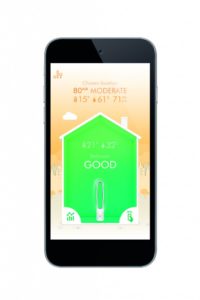Lungs of London schoolchildren “damaged by poor air quality”
Early findings of research into the impact of poor air quality shows that it is reducing the lung capacity of schoolchildren in London, writes Steve Eminton.
The lung capacity of schoolchildren in some London boroughs is being reduced through living by and going to schools near main roads, according to initial findings of ongoing Low Emission Zone research .
The early indication of some of the findings relating to lung capacity in research work currently being undertaken by the Lung Biology Group of the Environmental Research Group at King’s College London, was given at last weekend’s air pollution conference “Cities for Clean Air, London 2012”.
Dr Ian Mudway, MRC-HPA, explained at the event that the Kings College study involved conducting health assessments in 8-9 year-old children at selected schools in the London boroughs of Tower Hamlets and Hackney.Â

- Dr Ian Mudway who said that lung capacity of children appeared to be reduced because of poor air quality in Tower Hamlets
The health assessment includes measurements of respiratory health, biomarkers of exposure to traffic-related air pollution, genetic susceptibility to the effects of air pollution, and systemic response to air pollution. The health data will be linked with modelled air quality data, provided by ERG’s modelling team, to provide a comprehensive picture of the affect of traffic-related air pollution on children’s health, and the impact of the LEZ on this. Â
Dr Mudway said research was continuing and that it was noticeable how many children and their families lived less than 500 metres from a main road and that in terms of their schools, “some of these schools are snap bang on busy roads.”Â
And, highlighting the impact of air pollution, he said: “We are already seeing evidence that children after four years of the study are having a lower lung capacity. Work is ongoing at the moment.”Â
WalkingÂ
Study work includes the analysis of walking to school journeys with researchers taking the same routes as the children and measuring air quality. One result of this research may be that different walk to school routes are suggested. Dr Mudway explained: “Providing people with short term meaasures to reduce exposure while dealing with policy issues can help.” Â
Earlier at the event, which was held at University London Union on July 14, Dr Mudway had warned of the seriousness of the air pollution problem within the capital. “There is an inversion level of NO2 over the city and it is visible. We are living in a traffic-derived soup.”
Dr Mudway said that lungs were affected by the quality of air in different parts of London to different levels of impact. Breathing air in Oxford Street could take the lungs seven hours to recover he said, and he described the street a “diesel corridor”. Different between Hyde Park and Oxford Street takes seven hours to recover.”
And, while he said that many pollutants had gone down in the UK since the smogs of 1952, air pollution still an impact. This was often, he explained, through a general impact on health and in particular other conditions: “People have an increasing level of other systems, asthma attacks, lung function changes and doctor visits. I guarantee that coming in on the tube today my lungs will be inflamed. Poor air quality can be life shortening for some people, causing premature ageing of the cardio vascular system, the lung system. These people should not be forgotten.”















[…] and children are some of the first to suffer. Research by King’s College London suggests the lung capacity of youngsters living in London has been reduced by living or going to school near main roads. These children have […]
I find this information really fascinating and of great concern.
In relation to this topic, I am very concerned about the continuing deployment of buses on Oxford Street since I became a bus driver 3 years ago after 25 years as a professional designer. For my first year I was assigned to the ARRIVA garage in Brixton, regularly driving the 159 and 137 routes into and through Oxford Street. It shocked me that buses were forced to ‘compete’ with pedestrians and cyclists. This should be made a total pedestrian zone. There is no need for buses along this road.
On a second point I, too, am greatly concerned for my own lungs as a bus driver – since we spend so much time ploughing through the traffic and the resultant fumes and particulates. This is (hopefully) only a very short-term career move for me, but some drivers have been doing it for 20-30 years or more, and I am hearing of drivers in their 50’s and 60’s on a monthly basis dying before retirement from heart attacks and lung cancer.
Please keep me informed of you project’s progress.
Yours faithfully,
Graham Smith
You can see the You Tube video of Dr Ian Mudway’s talk here: http://www.youtube.com/watch?v=JuVUYJrXd50
Or see his slides (with audio) on Slideshare: http://www.slideshare.net/CleanAirUK/ian-mudwaynetworkforclean-airism
Thanks,
Andrew, Network for Clean Air, and organiser of ‘Cities for Clean Air : London 2012’ from where this article is sourced.
[…] Lungs of London schoolchildren “damaged by poor air quality†| AirQualityNews. 51.491302 -0.114407 Share this:Like this:LikeBe the first to like […]